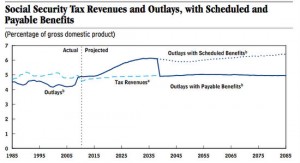Previous in the series:
I
I started off this series hoping to get some good comments that would further my rethink. Jim Bennet is an articulate representative of a current in the comments – “The first thing is for the union to realize that the primary interest of the union is to see that the employer survives and prospers.” I disagree but only because it ignores an important case, when employers do not deserve to survive.
I am starting from the premise that in capitalism’s 3 legged stool, there is no privileged leg. Capital, labor, rents, all have their heroes and their villains. All need to have the heroes promoted and the villains marginalized. This line of cooperativist thinking denies the need for villain marginalization. But sometimes we do need to kill off businesses. Sometimes we have too many firms and the weak need to go to the wall while salvaging their resources as much as possible. If either hero promotion or villain marginalization processes are weak or missing, the capitalist system suffers economic performance drops. We must have robust systems to more efficiently kill firms that need to die and labor can play an important role in that capitalist process. Labor needs to judge capital and act accordingly.
Let’s take a look at the UAW, for example and grant that everything they say about GM management is true. Let’s stipulate that collectively, GM management is unimaginative, largely made up of poor planners, make repeated bad decisions over a span of decades, and are generally responsible for running an American icon into the ground. So why did the union let them get away with it when they could have destroyed GM and served their members better? Stipulating that the UAW is entirely right about its indictment of GM management should have led to entirely different behaviors and would have largely saved Detroit and helped keep the rust out of what we now call the rust belt.
The UAW should have looked ahead to the inevitable train wreck and politically encouraged company formation in the areas where its members lived. It should have reworked its own structure so that union members moving to “nonunion” firms didn’t lose out with the union by it. It should have educated its workforce on the need to pass judgment on bad management in a practical sense and the importance of creating enough jobs at good employers so there would be sufficient lifeboats at other firms when GM eventually collapsed under the weight of its poor decisions. The UAW did none of this. That’s a good reason why the UAW needs to be replaced.
The UAW should have encouraged the creation of laws to allow quick approval of low volume models so that custom car builders in the Midwest would be a constant challenge to “the big three” and increase the chances of an American firm with better management rising up on a consistent series of hits and replacing GM. That could happen either by simply outcompeting GM or as NeXT software did to Apple by the guppy swallowing the whale and giving the larger company a management transplant.
A proper representative of labor would be agitating against laws restricting the sale of automobiles to expensive dealership networks, for reducing the cost of approving cars so they can be driven on public roads, and generally for pro-startup legislation. A proper representative of labor would pressure local municipalities and counties to constantly diversify their job base so that no matter how badly a particular company did, members wouldn’t be stuck in dying towns with few job prospects.
A capitalist system that had unions like this would have improved growth prospects, healthier communities, and be much more hostile to bad management wasting resources and serving their shareholders poorly. It makes you wonder why nobody’s made this sort of organization.
